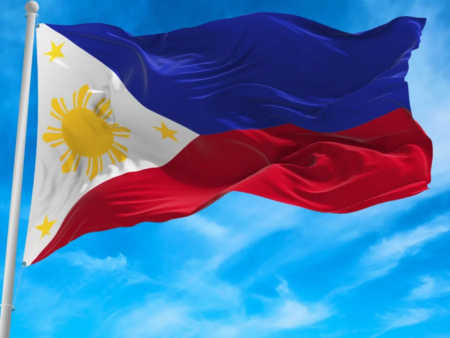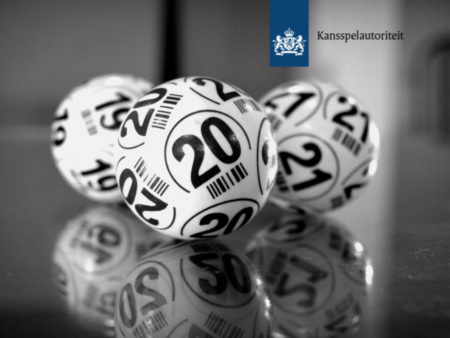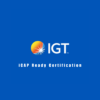BC.Game, a prominent platform in the global iGaming industry, has announced its decision to withdraw its operating license from Curaçao. This significant move comes after the platform initially obtained its Curaçao license earlier this year under the National Ordinance for Games of Chance (LOK) regulatory framework. Despite Curaçao’s ongoing efforts to modernize its iGaming legislation, BC.Game has highlighted persisting regulatory hurdles as a primary factor behind this decision.
Understanding Curaçao’s iGaming Landscape
A Legacy Framework Struggling to Adapt
Curaçao has long been recognized as a hub for iGaming operators due to its historically lenient licensing processes. However, the region’s regulatory infrastructure, including its bankruptcy laws dating back to 1931, has faced increasing scrutiny. Operators, including BC.Game, have found these outdated legal frameworks insufficient to support modern operational needs, leaving companies vulnerable to financial and compliance risks.
National Ordinance for Games of Chance (LOK)
The introduction of the LOK framework aimed to address these issues by providing a more structured and transparent licensing environment. While this represented progress, BC.Game’s experience underscores that the reforms have not yet fully resolved longstanding challenges, such as insufficient legal protections and the inability to adapt swiftly to the evolving global iGaming market.
BC.Game’s Strategy Behind the Withdrawal
Prioritizing Modern Regulatory Frameworks
BC.Game has emphasized that its decision to withdraw from Curaçao aligns with its broader strategy to prioritize compliance with robust and contemporary regulatory frameworks. By shifting focus to jurisdictions with clearer operational standards and more secure legal environments, the platform aims to enhance user security and foster sustainable growth.
Maintaining Global Operations
Despite this withdrawal, BC.Game has assured its users that its global operations remain unaffected. The platform continues to hold licenses in multiple reputable jurisdictions, ensuring compliance with international regulatory standards. This strategic diversification allows BC.Game to mitigate risks associated with region-specific challenges while continuing to offer a secure and seamless experience for its users worldwide.
Key Challenges Driving the Decision
Outdated Legal Protections
One of the critical issues cited by BC.Game is the outdated bankruptcy legislation in Curaçao. The current laws fail to offer sufficient safeguards for operators, leaving businesses exposed to financial uncertainties.
Regulatory Uncertainty
While the LOK framework was a step in the right direction, its implementation has not fully addressed regulatory inconsistencies. This has created an inhospitable environment for operators, particularly those with a global footprint like BC.Game.
Competitive Disadvantages
Operators in Curaçao often face challenges in competing with platforms licensed in jurisdictions offering more modern and robust regulatory frameworks. By withdrawing from Curaçao, BC.Game is positioning itself to operate in markets that provide better support for compliance, growth, and user trust.
Implications for the iGaming Industry
A Wake-Up Call for Curaçao
BC.Game’s withdrawal serves as a stark reminder for Curaçao to accelerate its regulatory reforms. The loss of a high-profile operator highlights the need for the region to address persistent issues to retain its status as a competitive iGaming hub.
Increased Focus on User Security
The decision reflects a broader industry trend toward prioritizing user security and compliance. As operators increasingly seek jurisdictions with stringent standards, regions with outdated frameworks risk losing their appeal.
Strategic Shifts Among Operators
BC.Game’s move may prompt other operators to reevaluate their licensing strategies. The emphasis on long-term sustainability and alignment with modern standards could drive more companies to explore alternative jurisdictions.
BC.Game’s Commitment to Excellence
BC.Game’s decision to withdraw its Curaçao license does not signify a retreat but rather a strategic advancement. By aligning with jurisdictions that support innovative, secure, and user-centric operations, BC.Game reinforces its commitment to providing a world-class gaming experience. This move underscores the platform’s dedication to remaining at the forefront of the iGaming industry.
Conclusion: The Withdrawal
BC.Game’s withdrawal from Curaçao represents a pivotal moment in its journey toward operational excellence and sustainability. This decision highlights the challenges of operating under outdated regulatory frameworks while showcasing the platform’s dedication to aligning with jurisdictions that prioritize compliance, user security, and growth. As BC.Game continues to thrive globally, this move serves as a testament to its strategic foresight and unwavering commitment to excellence in the iGaming industry.
FAQs About BC.Game’s Withdrawal from Curaçao Operating License
1. Why did BC.Game decide to withdraw its Curaçao operating license?
BC.Game withdrew its Curaçao operating license due to challenges associated with outdated regulatory frameworks, including insufficient legal protections like bankruptcy laws dating back to 1931. The decision aligns with BC.Game’s strategy to operate in jurisdictions with modern and robust regulatory standards that better support global operations and user security.
2. What is the National Ordinance for Games of Chance (LOK)?
The National Ordinance for Games of Chance (LOK) is a regulatory framework introduced by Curaçao to modernize its iGaming licensing process. It aims to provide better structure and transparency. However, BC.Game cited that the LOK framework has not fully resolved significant challenges, such as regulatory uncertainty and legal vulnerabilities.
3. Will BC.Game’s global operations be affected by this decision?
No, BC.Game’s global operations will remain unaffected. The platform holds licenses in multiple jurisdictions, ensuring compliance with international regulatory standards and maintaining a secure gaming experience for users worldwide.
4. What challenges did BC.Game face in Curaçao?
BC.Game faced several challenges in Curaçao, including:
- Outdated bankruptcy laws that left operators vulnerable.
- Regulatory inconsistencies under the LOK framework.
- An inhospitable environment for modern iGaming operations.
These issues collectively influenced the platform’s decision to withdraw its license.
5. How does this withdrawal align with BC.Game’s broader strategy?
The withdrawal is part of BC.Game’s strategy to align with jurisdictions that offer robust, contemporary regulatory frameworks. This move enhances user security, supports sustainable growth, and ensures long-term operational stability.
6. How might BC.Game’s withdrawal impact the Curaçao iGaming industry?
BC.Game’s withdrawal highlights the need for Curaçao to accelerate regulatory reforms. Losing a high-profile operator underscores the region’s challenges in retaining competitive appeal amid increasing demands for modern governance in the iGaming industry.
7. What does this decision mean for BC.Game’s users?
For users, this decision means enhanced operational reliability and security. BC.Game remains committed to maintaining a seamless and secure gaming experience, as it continues to operate under licenses from jurisdictions with stringent compliance standards.
8. Does BC.Game plan to expand to other regions?
Yes, BC.Game is focused on aligning with jurisdictions that support innovative, user-centric, and secure iGaming operations. This strategic shift indicates potential expansion into regions with modern regulatory environments.
9. What are the implications of this decision for other iGaming operators?
BC.Game’s decision may prompt other operators to reassess their licensing strategies. Many may seek jurisdictions with robust regulatory frameworks to ensure operational stability, compliance, and user trust.


















